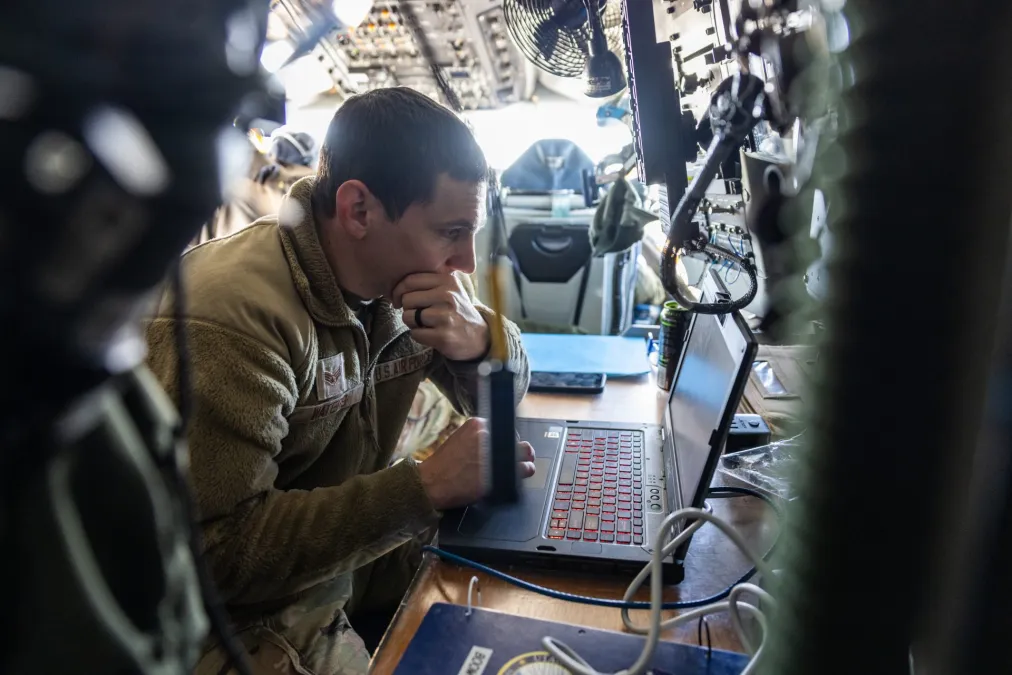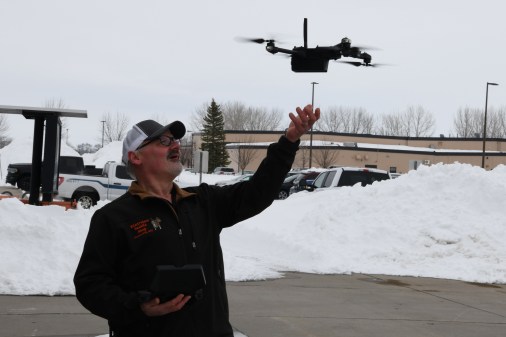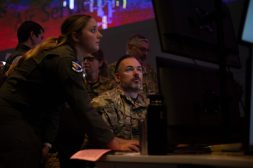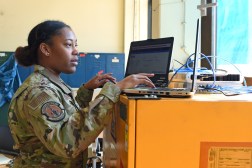Utah Air Guard base to receive 2 new cyber operations squadrons

The Roland R. Wright Air National Guard Base in Utah will wind down its tactical air control party (TACP) squadron and eventually replace it with two new units focused on cyber operations, according to the Air Force.
The service announced Thursday that the military base has been chosen as the preferred location for the Air National Guard’s new cyber operations squadrons, expected to reach full operational capability by 2030. The Air Force intends to support the new cyber units by converting manpower from the base’s 109th Air Control Squadron, which is being inactivated due to recent budgetary divestments in the mission.
TACPs are highly trained special operations units that team with ground forces from the Army or Marine Corps and bring in airpower support. However, a provision of the fiscal 2025 defense budget directed the service to cut 50 percent of its TACP and control and reporting center missions across the Air National Guard.
The move comes as the Pentagon continues moving away from operational concepts employed in the Middle East during the post-9/11 wars and instead shifts its focus to preparing for conflict in the Indo-Pacific. Part of those efforts have centered on bolstering the entire military’s cyber capabilities and personnel to keep pace with the United States’ adversaries.
As the 109th is inactivated, the Utah Air National Guard plans to reassign some of its manpower to support standing up the new cyber squadrons, “which aligns with an increased focus on cyber capabilities in support of the Interim National Defense Strategy,” the Air Force said in a statement. The transition will result in Utah gaining 12 full-time personnel authorizations, but it will lose 52 part-time authorizations, the service said.
In 2024, the Utah Air National Guard announced that the 109th Air Control Squadron would undertake a significant transformation by shifting the unit’s mission to embrace cyber and electronic warfare. The new mission would require the Air National Guard to redeploy equipment, reconfigure its facilities for cyber operations and conduct extensive retraining of its personnel, according to the service.
“The recognition of cyber capabilities as a tactical asset is growing at the highest levels of the National Guard and the U.S. Air Force. The decision to transition the 109th reflects a broader strategy to enhance national security in a digital age,” the Air National Guard said in a statement last year. “With Global Power Competition ever present and players like China and Russia advancing in the cyber domain, the U.S. must adapt to maintain its strategic advantage.”






